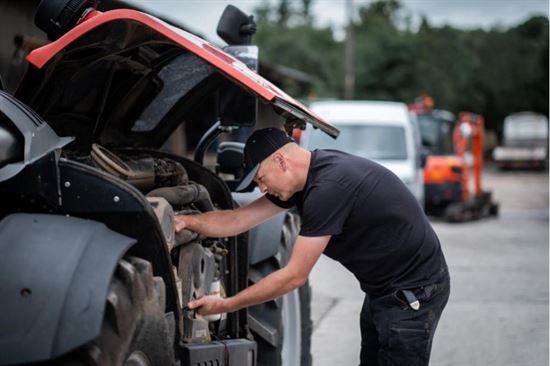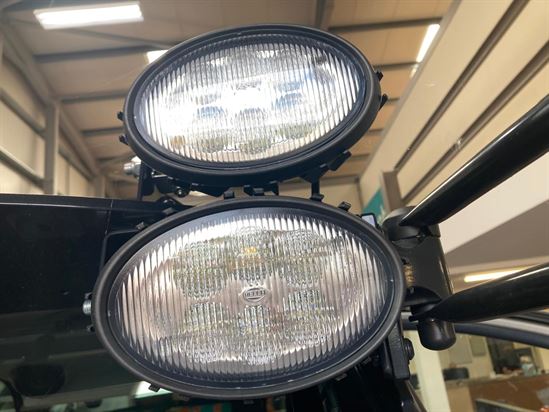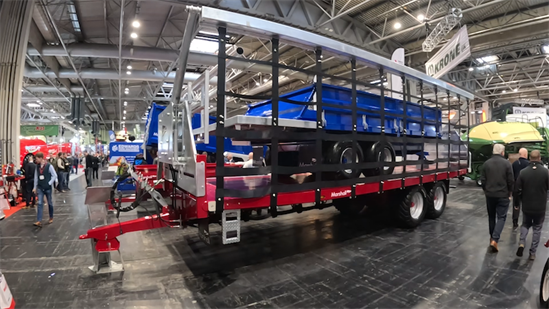Safety in agriculture is a key focus of any farming business with many potential hazards that can cause long term injury or even prove fatal.
Farm Safety Week, organised by the Farm Safety Foundation (Yellow Wellies) looks to raise awareness and recognise the impact of incidents on farms, how we can work together to stay safe and improve the health and safety of our work environments.
At P.V. Dobson we’ve put together our top ten ways that you can implement to make a difference and make your farm safer. Most of these are inexpensive, many are common sense but all could save a life or injury on your farm.
1. Risk Assessment
First things first when it comes to safety we need to find out what the dangers are currently. This doesn’t need to be an overly complicated process just take your time walking around the farm and writing down any potential dangers, is there an electric wire going over where you tip muck? Is the PTO guard fitted and working correctly on every PTO machine? Once completed it can be a good idea to bring in a fresh set of eyes be it a friend or relative to catch any dangers you may have missed.
Once all the dangers are on paper you may find a large proportion of them can be remedied quickly and simply by yourself, for larger issues, you may need expert advice/help for which the HSE is happy to be on hand.
Check out their free farm safety guide here hsg270.pdf (hse.gov.uk)
2. Maintenance

Once your Risk Assessment is completed you may have found some much-needed maintenance to be completed. Ring hitches, hydraulic pipes, braking systems, PTO guards, slurry pit guard rails etc all create major dangers on the farm if they are not kept in good order.
Fixing these may make a huge difference in farm safety. If you do not have time to do this machine maintenance yourself get in touch and we will be keen to get out and repair these for you.
3. Tiredness
We all know agriculture can put huge demands on the workers to do long hours, especially during silage and harvest seasons. However it is imperative to keep an eye on yourself and your fellow workers to ensure this isn’t taken too far and risks an accident taking place. It may seem incredibly important at the time but if the grass has to wait in the field a few hours for you to do it safely that’s worth far more to your family and friends than any amount of silage could ever be.
4. Visibility

Increasing your visibility on the farm can go a long way to improving your safety. Mirrors, reversing cameras, and extra lights can be a huge help in this area but even simple things can go a long way. Agreeing with staff to get the thumbs up from the operator before going near a machine, creating designated walkways, and using signs to create visual reminders of the dangers in certain areas are all simple, cheap/free ways to reduce risk.
5. Safety boots
Appropriate footwear can be the difference between an injury and not. Good quality safety boots or wellies can provide you with the grip required on the farm as well as a layer of protection from anything that may be sticking up to go through your sole or pressing down onto your foot.
6. Helmet
If an RTV with a roll cage and seat belt isn’t suitable for your farm for any reason then a simple helmet is a must-have for those using quad bikes. Since their inception in the 1980s quadbikes have been a great tool but a constant danger on farms, however today’s machines are on another level to those of 40 years ago.
Power, weight, and speed have increased massively in the past decade and now often with no option to buy the smaller machines from the manufacturers, farmers must learn to treat these machines as you would a bike for the road.
7. Straps/Chains

Safely securing your bales/machinery when they are being transported is a must. A simple set of ratchet straps on bales or a set of chains on machinery could prevent the load moving and injuring yourself or others. The risks of climbing onto a load of round bales to strap them down by yourself can be an issue but this can be negated by working with someone or investing in machinery such as this Marshall trailer with hydraulic folding sides to hold the bales.
8. Man basket
Having a man basket and harness on the farm ready to fit to your telehandler/loader is another great low-cost option to improve safety when doing anything at height.
9. Slurry gas monitors
Slurry gas monitors are a must have when dealing with slurry. Hydrogen sulphide can knock out your sense of smell and within just a few breaths can cause you to struggle breathing and become disoriented and even kill.
Alongside the slurry monitor you should also be taking precautions such as moving away all animals, creating as much airflow as possible and ideally having another person aware of what you are doing and regularly checking in with you.
10. Talk to a friend
Farm work can be a lonely and stressful occupation. In 2021/2022 in England and Wales 22 farm workers lost their lives in fatal accidents but 36 suicides were recorded among those working in agriculture in the same time period.
If you are feeling the pinch please reach out to your friends, family, and our staff. We have contact details for farming groups if anyone would like to join their local group and will go out of our way to help and support those that need it.
National Suicide Prevention Alliance also offer a specific Farming Community Network telephone helpline for those needing help now (03000 111 999 available daily 7am – 11pm) and an e-Helpline (help@fcn.org.uk).